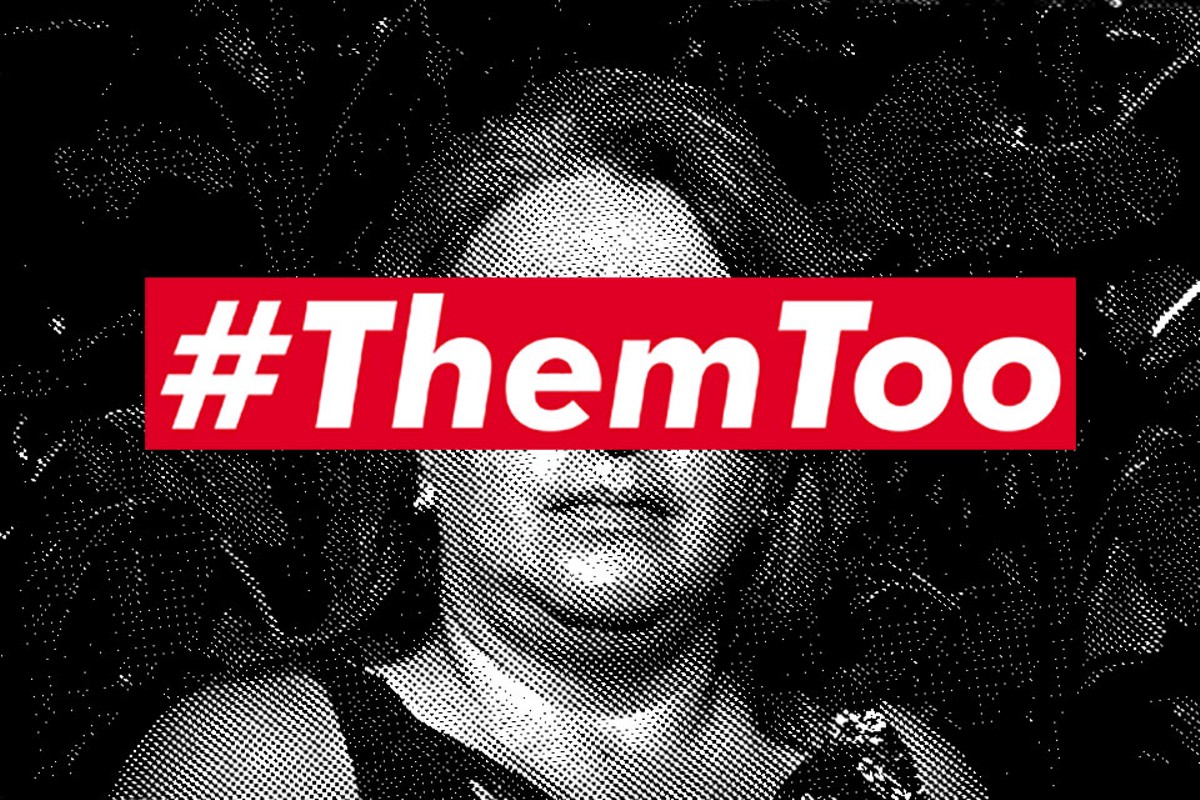On June 13, 2018, Lisa Davidson arrived at the St. Francois County prosecutor's office for the last time. Before leaving her car, she turned on a small wearable recorder. She'd started bringing it to the office months ago, ever since she filed a complaint with the Missouri Commission on Human Rights. Such a complaint represents the first step toward obtaining the legal right to sue for employment discrimination. Anyone can make one, even (as Davidson had done) without a lawyer.
Summarizing her allegations, Davidson had written, "Jerrod Mahurin has had sexual relations with the staff [sic] because I have not I am being bulled and harassed by Jerrod and the women who had sex with him." According to a copy of the original document reviewed by the RFT, the complaint was dated and notarized March 22. On the same date, Davidson faxed a copy to both Mahurin and to the commission.
But there was a problem. In a letter sent to Davidson March 23, an intake officer confirmed that the commission had received her complaint but noted that the faxed document "had some issues and the charge is unledgable [sic]." The officer asked Davidson to send a clearer copy.
Three months later, though, Davidson was still waiting for the attorney she'd subsequently hired to submit an amended complaint to the commission. She also waited anxiously as an RFT reporter entered Mahurin's office on June 12 to confront him with allegations of misconduct, claims for which she was one anonymous source.
The next day, a Wednesday, Davidson was in a meeting with several other employees when Mahurin pulled her aside. He mentioned the human rights commission complaint.
"I need to know how that document got in my office," Mahurin asked her, according to a recording she shared with the RFT.
Davidson responded that she'd previously faxed her complaint to the office.
"OK, right," Mahurin said. "Whatever the reason being, that's fine. Well, I need to let you know that I have confirmed that there was nothing filed with the human rights commission. So, I don't know, this appears to be a false document that you tried to provide me with, and I don't understand what it means."
He continued, "Nonetheless, I'm terminating your employment immediately."
"OK," Davison said.
Mahurin told her to turn in her keys and ID cards. "Obviously," he said, "you'll be out of here as soon as you get that collected."
Davidson didn't protest. "OK," she repeated.
In a subsequent interview, Mahurin denies that he fired her in retaliation for speaking to RFT — although, as with Williams' emails, he also hints that he's treating Davidson's actions as a criminal matter.
"Under law, I cannot tell you the reason for her termination, nor can I comment on someone under criminal investigation," he says. "It was certainly not in retaliation to anything. Ms. Davidson's firing was for an entirely different reason that I will not discuss."
Other than Davidson and Williams, who are now both former employees, the two other sources speaking out against Mahurin declined to allow the RFT to use their names or identifying details, including their gender or specific professional relationships to the prosecutor's office. Those conditions weren't given out of convenience, they say, but fear.
That's not unusual in cases where employees allege sexual harassment, even in this newly emboldened #MeToo era.
"We commonly deal with victims of sexual harassment that kind of grin and bear severe and pervasive sexual harassment for years, and they're too fearful to come forward," says Kumin. In many workplaces, whistleblowing can be a dangerous proposition, and the threat of retaliation encourages employees to provide silence or cover, even for a bad boss, Kumin says. "These people may want to be known as great employees, not employees who have reported sexual harassment."
In Mahurin's case, some sources say it's worse than just the usual boss/employee dynamic. Mahurin, after all, has the power of the prosecutor's office.
"The only reason I'm staying anonymous is I fear that he will file criminal charges against me or find some kind of way to keep me quiet in the future. It's not just that I'm worried about him not liking me," says one source.
Another source, an attorney who works in the region, says that in the past they've been explicitly warned by local officials that Mahurin was looking into filing charges against them. Multiple sources say Mahurin has been known to act rashly in response to even petty disagreements. For a lawyer, they say, getting on the prosecutor's bad side could mean a client loses a chance at negotiating a plea deal. Or worse.
"A lot of the attorneys are just scared to death of him," the lawyer says. "The way he thinks, I think he could file bogus criminal charges at someone he's very angry at."
Indeed, that's what Bret Burgess, St. Francois County's former elected auditor, claims happened to him. Burgess' resignation in January 2017 came after Mahurin accused the auditor's office of criminal fraud for a highly unusual reason: It allegedly processed a purchase order that lacked the signature of the presiding judge.
Before the dispute exploded into criminal allegations, Mahurin and Burgess repeatedly clashed over budget issues, with the prosecutor publicly accusing the auditor of adjusting his office budget through "blackmail," and the auditor, in response, castigating Mahurin for going over budget and refusing to implement new accounting software.
In the fall of 2016, though, what seemed like a bureaucratic dispute became a Missouri State Highway Patrol investigation. Records show it was opened at Mahurin's request.
"That's when things got very sideways," Burgess says in an interview. Three months later, in January 2017, Burgess says he was exhausted by what he says was a made-up scandal and resigned his post.
But the investigation continued under a special prosecutor appointed by Mahurin, Washington County Prosecuting Attorney Josh Hedgecorth. In the meantime, the subsequently appointed "acting auditor," Amber Menjoulet, canned Burgess' assistant auditor, Jan Petty, over her involvement in processing the purchase order.
Burgess and Petty planned to sue St. Francois County — but that effort was diffused in June 2017, when they both received deferred prosecution agreements from Hedgecorth.
In the agreements, Hedgecorth seemed both to protect Mahurin's interests and undercut the criminal allegation. "It is my belief that the technical elements of forgery have occurred," Hedgecorth wrote, but then later acknowledged in the same document, "It's my opinion that there really wasn't any criminal intent in this incident."
In return for not filing charges, the agreement included a "special condition" that prevented Burgess and Petty from suing St. Francois County or seeking employment in the county government. In the end, Burgess and Petty signed the agreement, meaning Mahurin's investigation essentially ended the careers of two rivals, without the danger of a lawsuit hovering over the prosecutor's office or the county.
During the recent interview, Mahurin maintains that the fraud investigation against the auditor's office was proper under the circumstances. As for Hedgecorth, the Washington County prosecutor tells the RFT that his responsibilities carry a legal obligation to protect St. Francois County from lawsuits.
Burgess is less than convinced.
"I felt like I was bullied out of office, and obviously Jerrod had a hand in this [deferred prosecution agreement], and it was to escape a lawsuit." he says. "I'm personally concerned about Jerrod's behavior."
Then there's the case of Ryan Miller.
Last summer, the Farmington police officer posted a Facebook comment beneath a local news story detailing how Mahurin's office had struck a plea deal for a man accused of trying to run over his girlfriend with a truck. The deal carried five years' probation, no jail time.
Officer Miller commented, "Not a big deal apparently. Good thing he didn't get caught with drugs or he would spend his life in prison." He concluded with two eye-roll emojis.
On June 20, 2017, Miller was called into Mahurin's office for a meeting that included Farmington Police Chief Rick Baker. During the meeting, Mahurin flatly told Miller that they couldn't work together anymore. While Mahurin couldn't fire him directly, any police officer who's lost the trust of his prosecutor isn't going to be called to testify in cases. As Miller puts it, Mahurin "rendered me useless."
In a subsequent memo to the chief, Mahurin cited Miller's Facebook post and unspecified "mental issues" as the reason Miller shouldn't be trusted with a firearm. (Miller acknowledges that he's been diagnosed with depression and once attempted suicide.)
In a memo to Chief Baker, Mahurin wrote, "I believe Officer Miller has no credibility left." He added, "[Miller's] comments regarding my office and your department are highly disturbing to me, even if they are not to you."
Indeed, Baker stood up for his officer, and refused to fire Miller or even discipline him for the Facebook comment that so enraged Mahurin. However, a year later, Miller moved on from law enforcement, taking an IT job in a different part of the state.
Miller concedes that his Facebook comment invited trouble.
"Jerrod has a pretty notorious reputation on being extraordinarily harsh on drug offenders," Miller says. But he says that he never expected a prosecutor to destroy his police career over a Facebook comment.
After the Facebook post, Miller claims that Mahurin's office never again called him to testify.
"It was a personal attack against me, because I'd bruised his ego," Miller says. "I've never lied on the stand, and I've never conducted myself in a way that is contrary to the oath of office that I've served. I can't say the same for him."
Mahurin and his defenders question the motives of those coming forward.
"I assume they're disgruntled employees who have a vendetta against him," says Kim Brewer, a legal secretary in the office. "He's tried to be the best boss and prosecutor he can possibly be. He's not going to make everyone happy in that position."
But sources who have managed to put distance between themselves and the office say that it has instead taken time to feel safe enough to air grievances they've long privately held. Other sources who've interacted with the office, including Davidson and Williams, say they were emboldened by the mere fact that other voices were finally speaking out.
Mahurin, though, claims the November election poses an obvious motive. He contends his critics represent a "little group that's working collectively," and that these sources are "working with my opponent."
Indeed, Mahurin is facing his first contested election of his political career. After his appointment in 2012, he ran unopposed as a Democratic candidate in 2014. This year, he's facing a former St. Louis city assistant prosecutor, Melissa Gilliam, who is running as a Republican.
To Mahurin, the timing is suspicious.
"No one has ever made a complaint, no one has ever said anything, but during election time, now they come forward with all these stories," he says. "If that's the road we have to go down to discredit me in an election, I don't think it's appropriate. To tear my career down over an allegation that no one has any evidence — it hurts, it really does."
In an interview with the RFT, though, Gilliam denies that Mahurin's problems could be attributed to her campaign.
"I know Mr. Mahurin is looking to divert attention away from his behavior," she says, "but I have nothing to do with the questionable ways that he treats his employees and manages the prosecutor's office."
As for the sources interviewed in this story, they don't dispute that the election is a factor in their decision to speak out. The prospect of political change, one points out, has given them new hope after years of frustration.
"For the people that I've talked to, they feel that now coming forward actually means something. They can tell the voters that this is happening," the source says. "Now we have a chance. Now our voices can actually have an impact on his power. Because otherwise, regardless of an article that gets written, he would just keep doing it."







